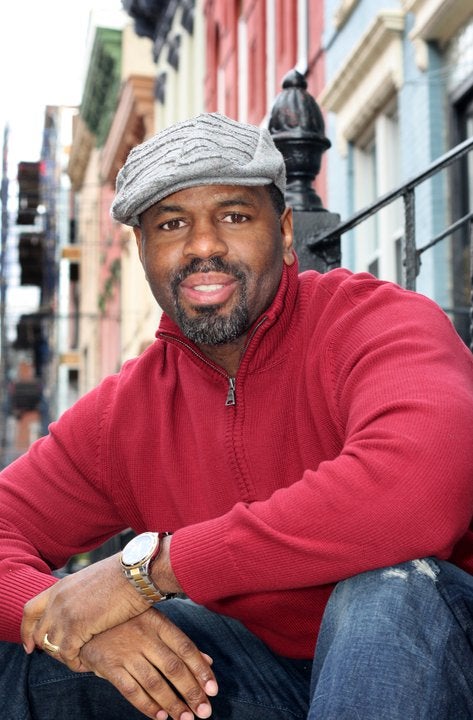
Soul food is so much more than a meal. In our grandmother’s mac and cheese or greens, we also find a way to connect with our family’s history, our identity.
Filmmaker Byron Hurt explores our deep love affair with the Southern fare in the film Soul Food Junkies and questions whether the celebrated high fat, high salt comfort food could also be more harmful than good. We spoke with Hurt about how soul food connects us to our history, his own battle with Type 1 Diabetes and how the sparked conversations beyond the big screen.
ESSENCE.com: Since the national premiere of Soul Food Junkies on PBS, to what extent has the conversation about soul food shifted in our communities, if at all?
BYRON HURT: I think people are talking about the legacy, meaning, and the tradition of soul food more on a national level. People who have seen the film are buying the DVD and having conversations with their families and friends. I think people understand that we can maintain our beloved tradition by simply changing the way we prepare and cook our favorite soul food dishes.
ESSENCE.com: How has Soul Food Junkies been received across the country?
HURT: It has been a hit nationwide. There have been over 200 screenings of the film in cities and towns across the country since the PBS broadcast. I’ve shown the film in theaters, churches, community centers, high schools, universities, museums, libraries, beauty salons, and wherever people want to show it. People are laughing, crying, talking back to the screen, testifying, sharing their personal stories, and spreading the word about it. It’s been a wonderful experience so far.
ESSENCE.com: The title of the film might give one the impression that your film seeks to vilify this African-American culinary tradition. Why name it Soul Food Junkies?
HURT: Because many people cannot give up eating certain high fat, highly caloric soul food meals, even though we know it’s not the healthiest for us. The ‘Junkies’ part of the title is a play on words. We love soul food and will most likely continue to eat it, even though some of the traditionally prepared dishes may not be so healthy for us. Many of us simply don’t want to give it up, despite the health risks, and some of us flat out refuse give it up because soul food is so much a part of our cultural identity.
ESSENCE.com: Were you concerned that people would write it off before even seeing the documentary?
HURT: Not really. I believed the title of the film would actually peak people’s interest, and would pull them in. I knew once they watched the film in its entirety, they would see that the film honors soul food, not disparages it.
ESSENCE.com: Much has been said about the historical references you make in Soul Food Junkies. Why did you feel it was important to connect soul food to Africa, to the Civil Rights Movement, etc.?
HURT: Well, history is important. And I believe that in order to better understand anything, historical context is very important. When you go to a therapist to address a problem that is front and center in your life, the therapist is not concerned so much about the current crisis, they want to know your history. Your history helps you better understand yourself, and why you find yourself in your current predicament.
ESSENCE.com: You tell the story of Soul Food Junkies from a personal space—your father was overweight and in poor health when he died. You also feature your mother and your sister. Has this film bought the three of you closer together?
HURT: My mother, sister, and me are very close to begin with, and the film, I think, was therapeutic for all three of us.
ESSENCE.com: A year ago, right before Soul Food Junkies was finished, you were diagnosed with Type 1 Diabetes.
HURT: My life has completely changed. I have to check my blood sugar and give myself insulin multiple times a day. That is a major life change. It’s been very difficult, but I am focused and committed. All my doctors say that I have consistently managed my blood sugar exceptionally well.
ESSENCE.com: Your next film, Hazing: How Badly Do You Want In?, explored the issue of hazing in Black culture. Why do you think you solely focus on socially conscious subjects?
HURT: I don’t know. I’m just that type of dude [laughs]. Seriously, I’ve been really influenced by freedom fighters and social activists who stand up for social justice. I see my role, as a filmmaker, as using long form documentary filmmaking to help people achieve social equality around race, class, and gender issues.







